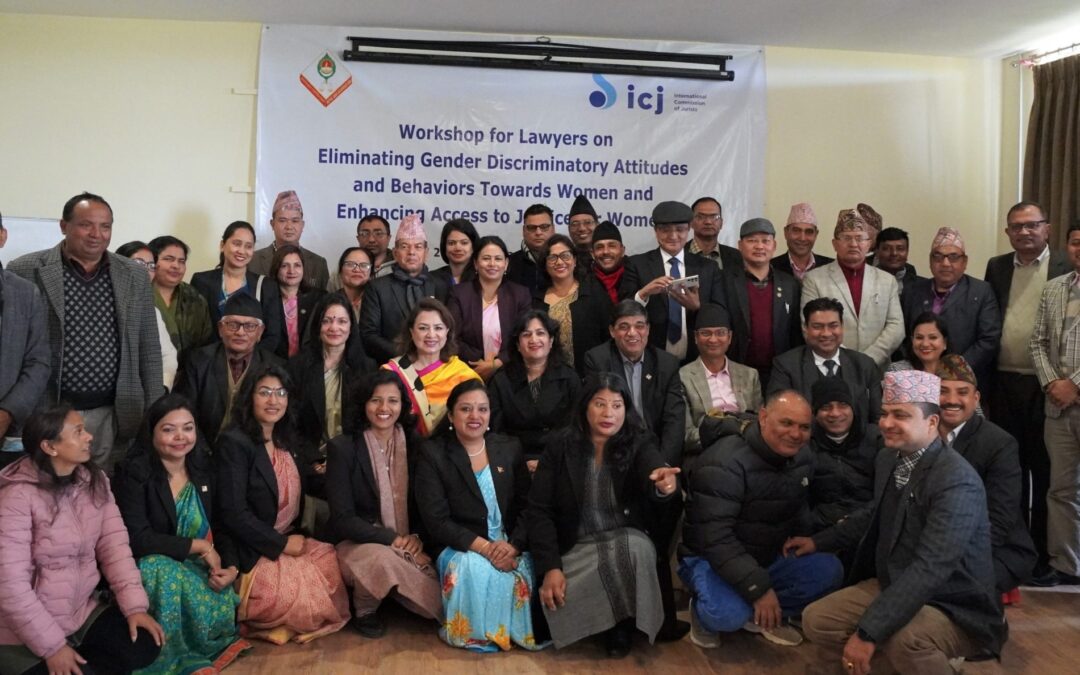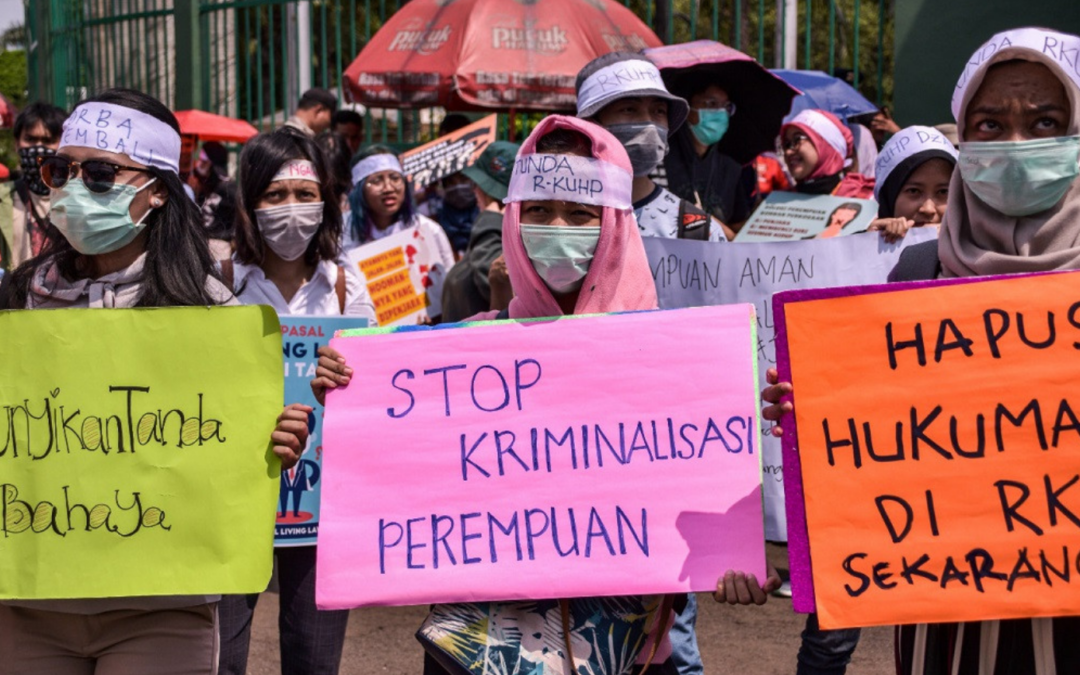
Jan 31, 2023 | Advocacy, News
At a workshop for lawyers focusing on the Elimination of Gender Discriminatory Attitudes and Behaviors Towards Women and Enhancing Access to Justice for Women organized by the International Commission of Jurists (ICJ), in collaboration with Nepal Bar Association (NBA), participating legal practitioners agreed that gender stereotypes and gender discriminatory behaviors pose major barriers for women who are in their quest to access justice.

Sep 21, 2020 | News, Op-eds
An opinion piece by Ruth Panjaitan, ICJ National Legal Adviser in Indonesia.
Amid the COVID-19 outbreak in Indonesia, the House Representatives and the Law and Human Rights Ministry have continued their deliberation of the controversial Criminal Code revision as a priority bill.
The International Commission of Jurists has previously expressed concern that a number of provisions in the bill are inconsistent with Indonesia’s obligations under international human rights law. These provisions relate to the right to privacy, freedom of speech and freedom of association.
There are provisions in the draft that would have dire consequences for women’s rights in Indonesia. For instance, if implemented in its current form, the bill would explicitly criminalize cohabitation or the act of two consenting adults living together as heterosexual sexual partners outside of a legal marriage. Persons found guilty of cohabitation would risk up to six months of imprisonment or a fine of approximately Rp 10 million (US$633).
The act of cohabitation is currently not a criminal offence under the existing Criminal Code. However, Indonesian women who live with their partners outside of marriage are often stigmatized as women “of low honor”. In addition, there are some regions in Indonesia that have adopted local ordinances prohibiting cohabitation, such as in Batam and Aceh, as this practice is disfavored by the authorities because of harmful gender stereotypes and their interpretations of religious and cultural norms.
These local ordinances are being used by the local Public Order Agency (Satpol PP) and self-appointed “moral police” to publicly shame cohabiting couples, especially the women.
There have been numerous instances where the neighbors of a cohabiting couple have barged into private homes and publicly chastised the couple. In 2017, a couple’s house in Jakarta’s neighboring city of Tangerang was raided by men from the neighborhood who punched the couple, stripped them naked, paraded them around the community, and forced them to confess that they were living together “illegally”. The perpetrators recorded the incident on video, which unfortunately later went viral on social media.
Local vigilantes account for the biggest percentage of those who invade the privacy of those accused of cohabitation.
The National Commission on Violence Against Women (Komnas Perempuan) noted that gender-based violence of this nature often led women to experience excessive stress, depression, mental health disorder, sometimes even resulting in suicide attempts.
Under the bill, the prosecution of this offense can be initiated by a complaint filed by the spouse, parents and children. With written approval from family members, village heads may also file a complaint.
Consequently, this may serve to legitimize more arbitrary police and vigilante raids based on “mere suspicion” of any family member. This may also potentially empower abusive family members to accuse survivors of domestic violence, of a crime.
Since same-sex marriage is not legal in Indonesia, lesbian, bisexual and transgender women are at risk if they decide to cohabit as couples. Furthermore, this provision will also threaten women in remote areas who could only afford to have religious and/or adat (customary) marriage.
First, the criminalization of cohabitation constitutes an arbitrary and unlawful interference with people’s privacy. The right to privacy is protected under international human rights law, including the International Covenant on Civil and Political Rights (ICCPR) by which Indonesia is bound.
The right to privacy is central to the protection of human dignity and forms the basis of any democratic society. It supports and reinforces other rights, including the right of women to freely choose when or if she will marry.
The UN Human Rights Committee, the supervisory body for the ICCPR, has made clear that states have an obligation to adopt legislative measures to give effect to the prohibition against interferences with and attacks against the right to privacy – and to take measures to ensure the protection of this right.
Second, the criminalization of cohabitation violates other human rights guaranteed by the ICCPR, including the right to family life, a right that, as international human rights law acknowledges, may be exercised and enjoyed by two cohabiting partners without the need for them to be married to one another.
Third, the criminalization of cohabitation would constitute prohibited discrimination and a violation of the right to “equality before the law” and “equal protection of the law without discrimination for all” under international human rights law binding on Indonesia.
The House must therefore reject this bill because of its gender discriminatory nature and arbitrary interference with the right to privacy.
To download in Bahasa Indonesia , click here.
This article was first published in The Jakarta Post, available at: https://www.thejakartapost.com/academia/2020/09/05/consenting-adults-living-together-is-not-a-crime.html






